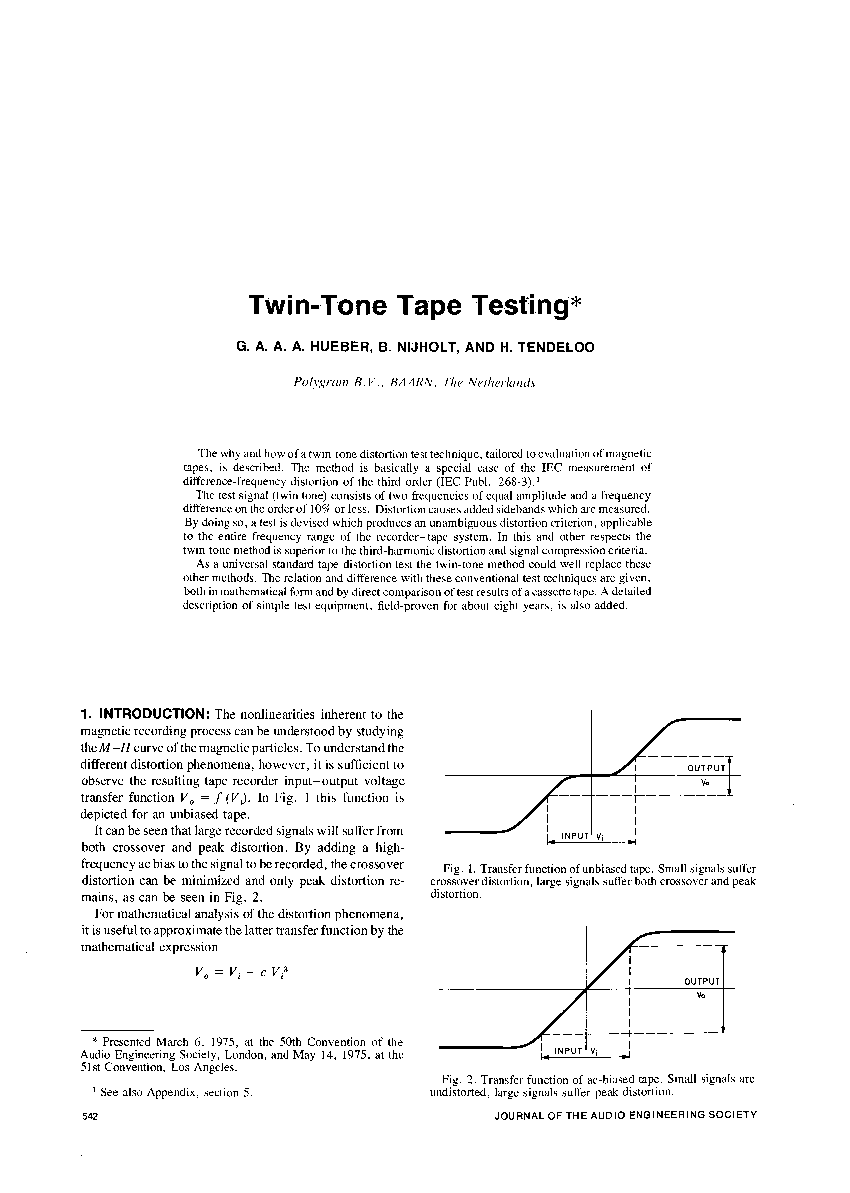Home / Publications / E-library page
You are currently logged in as an
Institutional Subscriber.
If you would like to logout,
please click on the button below.
Home / Publications / E-library page
Only AES members and Institutional Journal Subscribers can download
The why and how of a twin-tone distortion test technique, tailored to evaluation of magnetic tapes, is described. The method is basically a special case of the IEC measurement of difference-frequency distortion of the third order (IEC Publ. 268-3)./1: The test signal (twin tone) consists of two frequencies of equal amplitude and a frequency difference on the order of 10% or less. Distortion causes added sidebands which are measured. By doing so, a test is devised which produces an unambiguous distortion criterion, applicable to the entire frequency range of the recorder-tape system. In this and other respects the twin-tone method is superior to the third-harmonic distortion and signal compression criteria. As a universal standard tape distortion test the twin-tone method could well replace these other methods. The relation and difference with these conventional test techniques are given, both in mathematical form and by direct comparison of test results of a cassette tape. A detailed description of simple test equipment, field-proven for about eight years, is also added.
Author (s): Hueber, Gerardus A.; Nijholt, Bauke; Tendeloo, Han
Affiliation:
Polygram B.V., BAARN, The Netherlands
(See document for exact affiliation information.)
Publication Date:
1976-09-06
Import into BibTeX
Permalink: https://aes2.org/publications/elibrary-page/?id=2606
(1700KB)
Click to purchase paper as a non-member or login as an AES member. If your company or school subscribes to the E-Library then switch to the institutional version. If you are not an AES member Join the AES. If you need to check your member status, login to the Member Portal.

Hueber, Gerardus A.; Nijholt, Bauke; Tendeloo, Han; 1976; Twin-Tone Tape Testing [PDF]; Polygram B.V., BAARN, The Netherlands; Paper ; Available from: https://aes2.org/publications/elibrary-page/?id=2606
Hueber, Gerardus A.; Nijholt, Bauke; Tendeloo, Han; Twin-Tone Tape Testing [PDF]; Polygram B.V., BAARN, The Netherlands; Paper ; 1976 Available: https://aes2.org/publications/elibrary-page/?id=2606